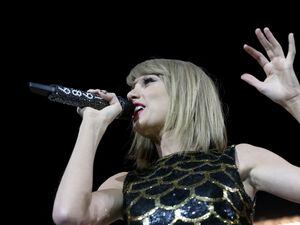Diversity in radio hasn’t kept up with changes in society – BBC Radio COO
Women, ethnic minorities and disabled people are still under-represented in senior roles, according to an Ofcom report.

Diversity in radio has been slow to come because it has not been a priority for a number of organisations, according to the chief operating officer of BBC Radio.
A report by watchdog Ofcom has found that women, ethnic minorities and people with disabilities are still under-represented at a senior level in UK radio.
Rhona Burns, COO of BBC Radio, told Ofcom’s Dialling Up Diversity In Radio podcast: “From my perspective, I would say radio hasn’t kept apace with changes in society, has been very slow to reform and certainly ways of working are not moving fast enough.
“Diversity hasn’t really been at the top of the agenda for quite a few organisations, although I would say that now there is definitely a very clear shift in that and rightfully it is at the top of the agenda.”
She added: “From where I stand today, diversity is very much one of the top priorities for the BBC as an organisation.
“It’s much louder, it’s much more embedded in our objectives, in what we want the BBC to be.”
Ofcom’s annual report, Diversity and Equal Opportunities in Radio, covers nearly 9,000 staff across 16 companies but particularly focuses on the three main radio broadcasters – BBC Radio, Bauer and Global.
The report found women continue to be under-represented at senior levels across all radio (36%) but that BBC Radio has the highest proportion of senior women (40%), followed by Bauer (36%) and Global (30%).
Disabled people make up 6% of roles, far below the UK working average of 18%.
BBC Radio and Bauer have the highest proportion of disabled colleagues (9%), with Bauer showing a marked increase from 3% in 2017.
Global’s performance could not be reported meaningfully, as most employees chose not to disclose their disability status.
There is still poor representation of minority ethnic employees at 7%, far below the UK working average of 12%.
BBC Radio (9%) and Global (8%) have the highest proportion of minority ethnic employees, while Bauer (3%) has the lowest.
However, gaps in Global’s data made it impossible to meaningfully report its performance and Ofcom has said the group must improve the quality of some of its data collection.
Will Harding, chief strategy officer at Global, said on the podcast that other challenges facing the industry have meant not enough focus has been given to diversifying the workforce.
He said: “It has been a decade of enormous change and I think as a result of the challenges we have faced and all the change that we’ve seen… we haven’t given diversity enough of a focus.
“At Global we are extremely proud of our culture, which we think is a very open and inclusive and welcoming culture, but it is not reflected in the make-up of our workforce. There is a lot of work to be done.
“The other reason is this is a long-term programme of change and it is not going to change overnight and it needs a lot of focus and a lot of effort to make the depth and breadth of change.”
Paul Keenan, president of audio at Bauer Media Group, said: “In our output, we seem to be diverse but we have ended up not being diverse in our workforce, so my conclusion is that we need to take direct action.
“To address that problem, we need to look at how attractive we are to diverse groups of people, how we bring people into the industry, how we accommodate a whole spectrum of people with different interests from different backgrounds so that we can reflect the communities that we serve.”





